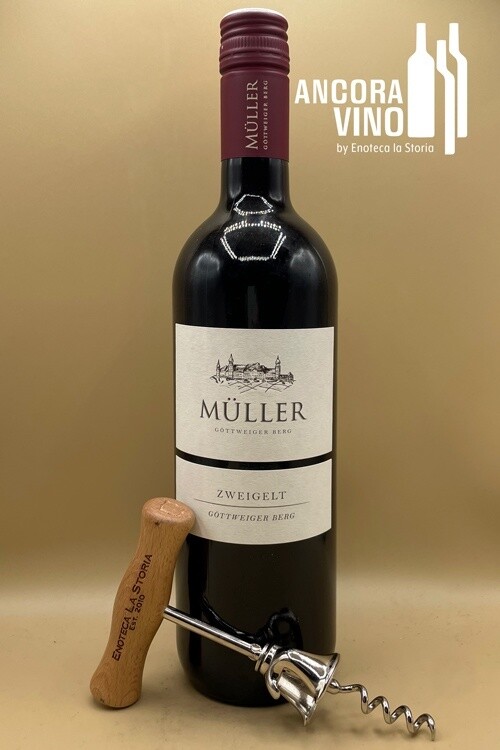2020 Müller Family Vineyards Zweigelt
100% sustainably farmed Zweigelt from vineyards vineyards situated around the “Göttweiger Berg” in the southern Kremstal. The vineyards mainly grow on gravel, which is covered by a massive layer of loess. The warm Pannonian climate from the east is creating a microclimate unique to the Danube valley. The combination of the well-suited soil along with the unique climate of the Danube valley lies the foundation for the perfect ripening of the grapes. Destemmed and fermented in stainless steel. No oak aging.
Tasting Notes
Ruby and garnet colors in the glass, beautiful scents of cherries and fine spices develop in the nose, nice berry notes on the palate, fruity, easy and smooth. Crisp and refreshingly light, with tart cranberry, strawberry, red apple and floral notes. Brisk acidity and light tannins. Light to medium bodied.
About Müller Family
This winery is located in the southern part of Austria’s Kremstal wine region in the picturesque village of Krustetten. The estate was first mentioned in the archive of nearby Göttweig Abbey as early as 1270 A.D. as a Lesehof—or wine press house, and has been run as a family business by the Müller family since 1936 when the grandfather, Leopold Müller acquired a small vineyard in Krustetten and made the first Müller wines. Today, the fourth generation of Müllers, Stefan and Leopold, are managing the estate, which is now comprised 120 hectares of prime vineyards. Stefan works as the vineyard manager and Leopold as the winemaker and sales manager; their philosophy is simple: to produce wine in harmony with nature. The basis of this philosophy begins in the sustainable cultivation of the vineyards, which includes long-term greening and slope maintenance to achieve a steady growth of beneficial organisms and increased soil recovery. They have a cellar that is built into the hillside on three floors. This allows them to use gravity flow to move the wine around the cellar, and naturally regulate the temperature of the wine while it ages in the barrels underground. Müller also uses their own spring water for all the work in the wine cellar, incorporating minimalist intervention practices during vinification.

